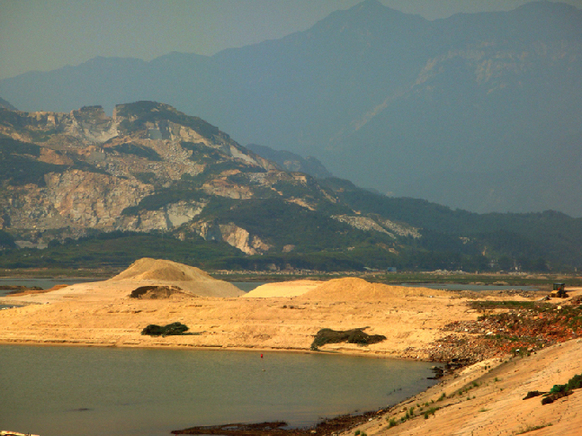Tougher fight against illegal sand mining proposed
 0 Comment(s)
0 Comment(s) Print
Print E-mail Xinhua, March 14, 2013
E-mail Xinhua, March 14, 2013
China should clamp down on rampant illegal sand mining in its largest freshwater lake to protect the local ecology, said a legislator on Thursday.
"Excessive illegal sand mining in the Poyang Lake area has posed a grave threat to the safety of river channels and dikes, and flood prevention, and might bring calamity to the ecological environments in the water area," said Fu Qionghua, a deputy of the 12th National People's Congress, China's legislature.
Poyang Lake is located in east China's Jiangxi Province. With a water body of 2,805 square km, it supplies 145 billion cubic meters of water annually to the Yangtze River. This equates to 15.6 percent of the total runoff of the Yangtze, the country's longest river.
Poyang Lake, known as paradise for migrant birds, is Asia's largest winter destination for migrant birds. About 95 percent of the world's white cranes, 50 percent of its white-naped cranes and 60 percent of its swan geese spend the colder months here every year.
The five branch rivers directing toward the lake cover drainage areas that total 97.2 percent of the province.
"The lake water, in amount and quality, carries a big weight in safeguarding the ecological safety of the medium and lower reaches of the Yangtze River," said Fu, vice president of the Jiangxi Provincial Institute of Water Sciences.
In 2000, the Chinese government banned sand mining in the Yangtze River. Many illegal sand mining businesses subsequently set their eyes on Poyang Lake and its branch rivers. Local residents say that the noise and activity of the operators' vessels has made it hard to sleep in some towns.




 Add your comments...
Add your comments...

